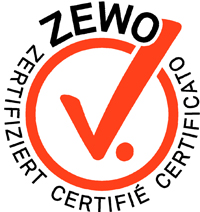The circular economy is a buzzword, but what does it really mean?
There is not one, but several definitions. The most accepted is this:
It’s about thinking about our consumer products so that they are recyclable for as long as possible. The goal is to reintroduce them into the economy after transformation and valuation, and this without having to withdraw resources from our planet again.
Good idea, isn’t it? However, the share of products, which is already very small, respecting this ideology has decreased in recent years. Once broken, I buy a new one! The vast majority of products on the market are not designed for this. Planned obsolescence and the law of novelty at all costs are still king. (Source)
Morija is developing the circular economy in its waste management project
Since 2020, Morija has set up a waste collection service in the Municipality of Nobéré in Burkina Faso. The waste is taken to a sorting center.
Organic waste is turned into compost. This will be sold to farmers in the region to feed their crops and give birth to new foodstuffs: the circle is complete!
All other waste that can be reused and recovered is stored and processed on site or sent to specialists who will give it a second life.
Vector illustration of circular economy showing product and material flow on white background with arrows. Product life cycle. Natural resources are taken to manufacturing. After usage product is recycled or dumped.











